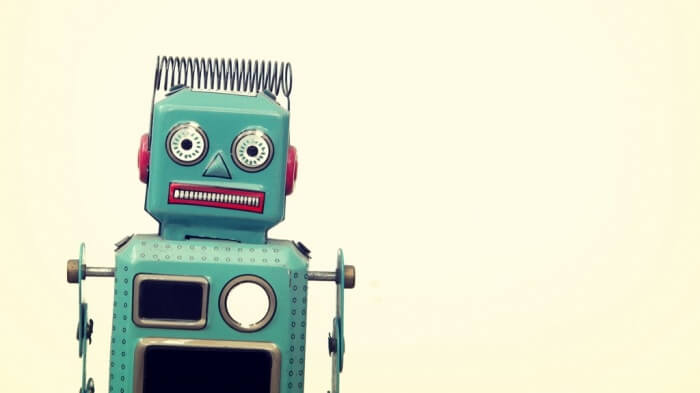Artificial Intelligence Will Take Our Jobs, And Make Them Better
Contrary to what the pessimists say, AI will enhance our careers - not erase them.

Anyone who liked the blockbuster: "Uberisation will kill us all", will not be disappointed by the sequel: "Artificial Intelligence will take our jobs”. The perception is that it will revolutionise the professional world and white-collar works will find their professional livelihoods under threat.
But is that really the case? What if artificial intelligence (AI) offered an opportunity for some professions to reinvent themselves? What if AI could be a growth driver?
In Uberisation we’ve seen the total disruption of an industry. Over the last ten years start-ups with little more than an idea and an internet connection have shaken up entire industrial empires. And even though they have virtually no assets, the market capitalisation of some of them is greater than that of their century-old, bricks & mortar competitors.
In politics too, we see the old ways of doing things begin to disintegrate as parties and countries reinvent themselves. Should we lament the end of these eras, or rejoice in the advent of a new world order? The reality is that uber-style changes can encourage industry-wide innovation, which bring benefits for citizens and workers.
So are AI and its sister technology, robotisation, a danger or an opportunity? AI is already present in the work place and home. Chatbots and virtual assistants help us to formulate a request on the internet or use the applications on our smartphones.
In business, software robots can free up support functions, like accounting, procurement and HR, by dealing with huge volumes of information in seconds and taking over tedious and routine tasks
Using AI-enhanced technology can optimise a manager’s time, allowing them to devote themselves to core business and more interesting work. If AI takes away some of the time-consuming tasks and leaves employees free to do more qualitative work; could this be a good thing for business? Could AI be more of an opportunity than a threat perhaps?
The threat-mongers exclaim that these professions and functions could disappear, with the work being carried out by AI software instead. Perhaps this isn’t so surprising a statement?

There's a lot of doom-mongering about our AI future
Whether it is record writing, invoice verification or transcription in accordance with accounting standards, these repetitive tasks take an enormous amount of time. Moreover, this manual work does not result in more precision; on the contrary, it usually decreases in reliability with the volume of documents to be checked; tiredness and boredom lead to mistakes.
Thanks to the digital assistants and AI, these functions can gain up to 50% in productivity. So rather than view AI as a threat and concern ourselves only with the job losses it may generate, perhaps we could start seeing it as an opportunity, a chance to benefit from this technology and grow the turnover of the business?
For example, the global energy group, Engie, uses AI to save its customers money and expand the services it can offer. Our AI software analyses huge volumes of invoices against an automated rules engine to verify the price calculations, saving time and money.
The AI software correlates supply contracts and invoices against a set of rules which relate to current energy tariffs compared to prices mentioned in the supplier contract, the consistency, the costs of different components and taxes specific to the electrical industry.
It cuts through the complexity of energy contracts to check the amount invoiced, identify errors and turn them into savings, whilst optimising the way energy is bought and paid for.
So in the work we’re doing at Dhatim, we don’t see AI as replacing accountants, payroll managers, procurement people and HR teams. On the contrary, we think it will help them to focus on improving the level of service the company can offer its customers, by freeing people up from manual tasks.
It’s an evolution for these professions and the real challenge of this new technology will be the management of change.

AI will take care of repetitive tasks so humans can be more creative
The big data explosion means that companies now have huge collections of professional information, but are struggling to analyse these banks of data effectively.
The USA tech giants may be good at analysing their consumers’ data, but there is an opportunity for UK and European firms to bring value to the data deposit inside their businesses. With AI technology organisations can capitalise on a detailed data analysis.
They can offer their clients value-added services like predictive management and cost containment through dashboards which show type of expense or benchmark purchases. The combination of these improvements can drive turnover and growth.
So AI technology not only reduces errors, by reducing the repetitive element of work, they can improve a company’s offering to its client buy improving data analysis. All this means AI can make jobs more interesting and create a more motivated workforce.
Interesting work and a motivated workforce improve the chances of attracting the talent of the new generation.
Evolution is inevitable. To forward-thinking organisations and the professionals in these industries and functions, AI offers a unique opportunity to reinvent their work to make it exciting, as well as more remunerative.
Rather than putting people out of jobs, clever automation is a unique opportunity to reinvent the business, enrich your services and invest in the future. Those who know how to seize this opportunity will be the winners.
Thomas Bourgeois is CEO of Dhatim.
Thanks for signing up to Minutehack alerts.
Brilliant editorials heading your way soon.
Okay, Thanks!

